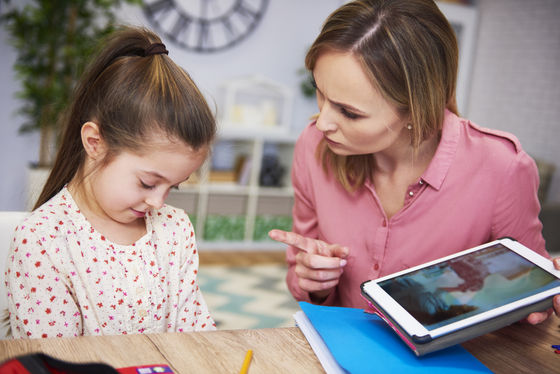How to maintain the well-being of children in home isolation?

Due to the pandemic of the new coronavirus infectious disease (COVID-19), schools are being closed around the world. Educators explain ' how to keep children happy while they are separated from their homes ' in order to keep their children healthy in a different environment where they are not allowed to go out freely.
4 good practices for anyone caring for quarantined kids
Kids at home because of coronavirus? Here are 4 ways to keep them happy (without resorting to Netflix)
https://theconversation.com/kids-at-home-because-of-coronavirus-here-are-4-ways-to-keep-them-happy-without-resorting-to-netflix-133772
◆ Establish daily routine
Many children are worried because their lifestyles are different before and after the COVID-19 Pandemic. Therefore, establishing a 'daily routine' for the family and understanding each other how to spend the day will lead to the peace of mind of the child. A 2008 University of Illinois study showed that routine and regular dinner and bedtime had a positive impact on childhood mental health.

However, one thing to keep in mind when following routines is that 'rigorous scheduling can increase anxiety,' said Erica Bocknek, associate professor at Wayne State University School of Education and Psychology. As a countermeasure, I recommended that 'meeting with a family member every morning to communicate and check the action plan for the day'. According to Associate Professor Bocknek, reviewing the action plan helps older children understand what they need to do and what younger children are looking forward to. Moreover, communication at the meeting itself has a positive effect on happiness.
◆ Set rules
It is important to live the rules when living together under one roof. In response to parents' desire to 'do household chores' for children who stay home at home, Associate Professor Bocknek said, 'A good opportunity to learn about the independence that one experiences at school, the sense of obligation to the community, and social involvement.' I said, 'and recommended the creation of such a rule. However, Associate Professor Bocknek warns that `` rules should be rational and predictable '' `` Consistency rules should be adhered to regardless of the result '', citing a

◆ Make time to actively interact
Children learn a lot from their parents' reactions. Regarding the precautions to take when dealing with a child, “It is not necessary for the parent to be a perfect parent, but it is the best condition for the child that the parent is enthusiastic and responsive to the child,” Boknek associate The professor commented that it was important to focus on the child. It is tiring to keep watching the child all day long, so Associate Professor Bocknek said, `` In order to maintain a keen and immediate reaction to the child, one day is spent actively interacting with the child. You should take it several times in a moment. '
◆ Try to make a 'special routine' for your family
According to Associate Professor Bocknek, incorporating a 'special routine' unique to my family will create a feeling of belonging to a special group and strengthen family unity. When a special routine strengthens family cohesion, it seems that one's identity is affirmed, which makes him mentally healthy.
As an example of such a special routine, Associate Professor Bocknek cites '

◆ Helping children exercise
Not only is good for health to exercise for children, that spirit may
According to McKenzie et al., Children in higher elementary schools tend to prefer to exercise with their parents, so parental support improves their motivation.
◆ Pay attention to how to use social media to maintain social connection
When your home isolation reduces the number of people you actually meet, you can lose your friendship. According to a 2016 University of Calgary study of children unable to meet friends due to hospitalization, engaging with friends through social media, games, and chat is important for maintaining a sense of friendship ..

However, McKenzie and colleagues mention the findings that young people who access the Internet are more concerned. Encourage children to consult if they have anxiety.
◆ Recommended except watching TV or Netflix
It is important for children to actively work on new things in order to elicit their interest. McKenzie and his colleagues advise “watching video passively” such as watching TV or Netflix to motivate them to work on new things. Instead, I encouraged parents and children to work on “achievable tasks” such as puzzles, and to combine cooking, chess, and science experiments.
Cooking with children can improve not only nutrition but also mathematics and science knowledge-GIGAZINE

In addition, McKenzie et al. Recommend that 'virtual tours' held by many museums and zoos around the world also attract children's interest and are useful for learning.
A collection of super famous overseas museums where you can view the collections for free & online-GIGAZINE

Related Posts:
in Note, Posted by darkhorse_log






